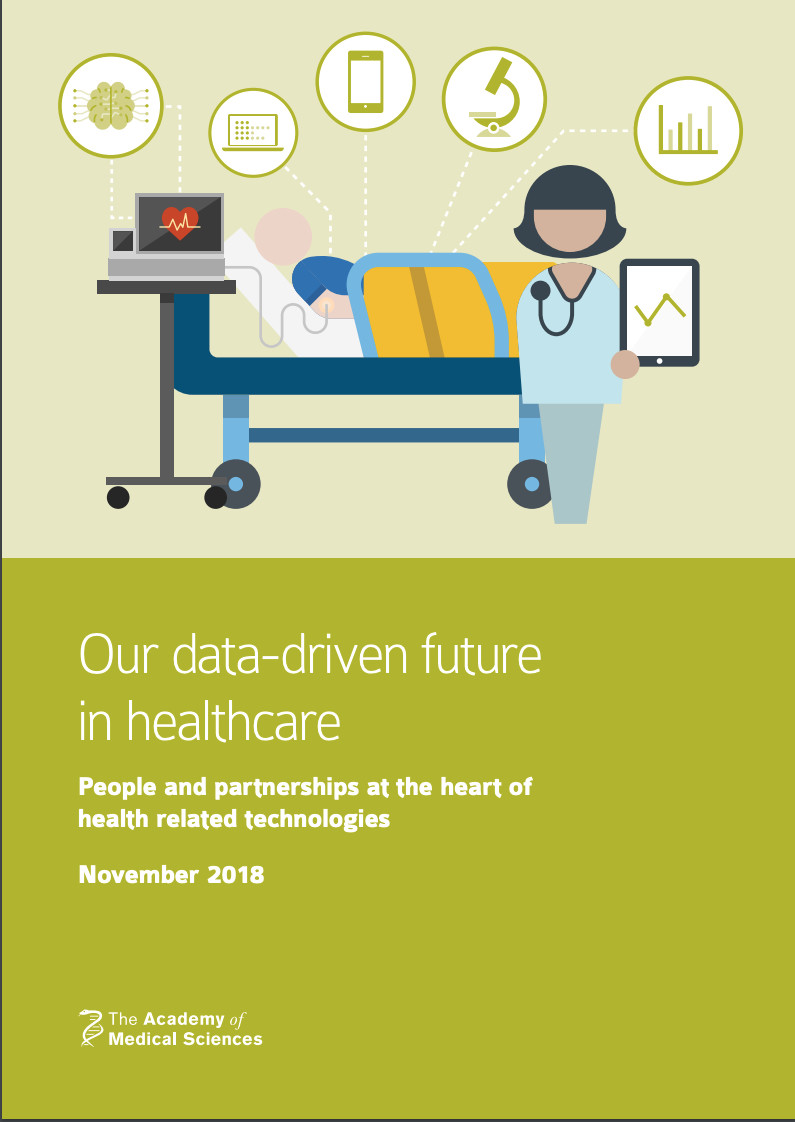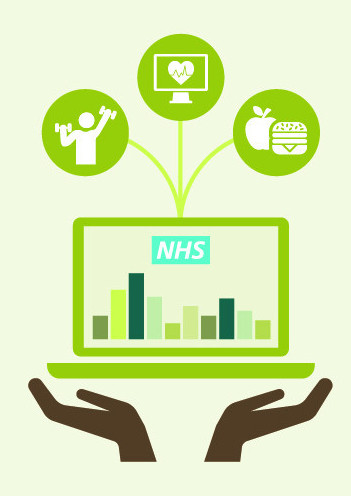The Academy launched a new report in November on ensuring people are at the heart of upcoming healthcare technologies. Here are the 5 things you should know:
1. We have developed essential principles for the use of patient data with healthcare technology to keep public trust
Putting the principles set out in the new report into action will enable organisations, including the NHS and medical technology companies, to respect and protect the privacy, rights and choices of patients and the public. The principles will help provide safeguards to support patient data being used in ways that are fair, and will enable all NHS patients to benefit from the use of health technologies using patient data.
Professor Carol Dezateux FMedSci, Chair of the report's Steering Group, said:
“The Academy report builds on what the patients and the public have told us matters most to them. By putting the public’s expectations at the centre of the use of data-driven technologies, the NHS, scientists, researchers and developers will be able to work together to deliver maximum health benefits for all, while keeping public trust.”
2. Patient data-led technologies have huge potential to improve health
Health technologies that are becoming increasingly important include wearable devices, mobile phone apps and intelligent monitoring devices. Smart insulin pumps for diabetes, artificial intelligence interpretation of pregnancy ultrasound scans, and houses designed with smart technology to monitor and support dementia patients and their carers, are examples in the report where patient data are already being used to develop health technologies.

The report was based on a public dialogue on future technology and health data funded by the Department of Business, Energy and Industrial Strategy. Maintaining public trust in use of patient data will be essential to putting the UK at the forefront of the Artificial Intelligence and data revolution as set out in the government’s Grand Challenges.
3. The public expect the NHS to be in control of their data
The report is based on the results of a programme of dialogue, commissioned from Ipsos MORI, that explored public, patient and healthcare professionals’ views on the future of technologies that use patient data. The Academy report emphasised that patients and the public expect the NHS to keep control and oversight of their patient data. Click here to download the Ipsos MORI report.
Professor Carol Dezateux, FMedSci, Chair of report Steering Group, said:
“The Academy report builds on what the patients and the public have told us matters most to them. By putting the public’s expectations at the centre of the use of data-driven technologies, the NHS, scientists, researchers and developers will be able to work together to deliver maximum health benefits for all, while keeping public trust.”
4. The NHS is uniquely placed to learn from patient data to improve health
The report highlights the potential of the NHS to become a world leader in the use of patient data for technologies to improve healthcare. It calls for action to be taken so the NHS can evolve into a system that learns from itself, feeding back digital information about patients and using technology to support patients and doctors.
Professor Sir Robert Lechler PMedSci, President of the Academy of Medical Sciences, said:
“The NHS has the potential to evolve into a world-leading learning health system, where every piece of patient information is collected and learnt from using smart technologies, to improve the health of the population.”
5. The report will impact on the work of many organisations
Reaction from other organisations includes:
Dr Natalie Banner, Lead, Understanding Patient Data, said:
“We are delighted to welcome this report. It is a timely call for meaningful engagement with patients, clinicians and the public about the scope and value of data-driven technologies in healthcare. Responsible stewardship of NHS and patient data is critically important. At a time of significant hype about artificial intelligence and its role in society, the principles in this report articulate just what it means to place people at the heart of technological developments in health and research. We look forward to working with the Academy of Medical Sciences and others on establishing how to put these grounding principles into practice.”
Professor Andrew Morris CBE FRSE FMedSci Director, Health Data Research UK, said:
“This report from The Academy of Medical Sciences is prescient. There is an urgent need to define systemic oversight and robust policy to support data driven innovation that is in the public interest.”
“The UK has an opportunity to make game-changing improvements in the health of patients and populations through data science research and innovation. Data is increasingly being recognised as an important asset. It is vital that patients and the public are engaged so that research and innovation is being progressed in a trustworthy way, with privacy safeguards that are clearly understood, evidence that benefits are being shared fairly, and data being used in a non-rivalrous way so that we derive the greatest value. I hope this report will act as an accelerator so that the UK can within five years be a global exemple of harnessing data driven technologies for public benefit.”
Professor Jonathan Montgomery, Chair, Health Research Authority, said:
“Few doubt the potential for data driven technologies to improve health care, but it is vital that they secure the confidence of patients, publics and clinicians. This timely report draws out the key principles that will ensure productive collaborations that integrate these technologies so as to promote our common purpose of better health and universally accessible health care.”
For more information, visit the report webpage or download the full report. To find out more about policy work at the Academy, visit our dedicated policy page.


